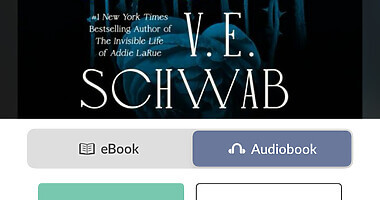In today’s digital age, the way we consume information has dramatically changed. We’ve gone from leafing through pages of printed books to scrolling through e-books on our smartphones or tablets. Even the way we grow our social presence has transformed. But does this digital convenience come at the cost of retention? Let’s explore how the medium impacts our ability to remember and understand what we read.
The Psychological Effect: Real Pages vs. Digital Screens
There’s a psychological difference between holding a physical book and swiping through an e-book. With a physical book, you have tactile sensations—feeling the weight fo the book, flipping the pages—which can enhance the reading experience. These physical actions serve as markers that help your brain locate where certain pieces of information are found in the book, aiding in retention.
On the other hand, e-books offer a different kind of interaction. The touch-screen experience can sometimes make the content feel more fleeting. There are fewer physical markers to help you remember, for example, that a specific quote was on the bottom left corner of a left-hand page in a traditional book.
Impact on Comprehension: How Well Do We Understand?
Several studies suggest that comprehension levels between traditional and electronic formats are roughly comparable, with minor nuances. However, the lack of physicality in e-books may lead to skimming through text more often, potentially causing lower comprehension and retention rates.
For instance, you might remember reading about the Watergate scandal in a history textbook because the information was accompanied by photos and situated within a larger, easily navigable context. When you read it as an e-book, the “skim-friendly” nature might lead you to miss out on these enriching details.
Convenience vs. Retention: A Trade-Off?
One undeniable advantage of e-books is convenience. You can carry an entire library in your pocket, making it incredibly easy to switch from one reading material to another. This convenience, however, could come at the cost of deeper engagement with the text.
In a physical book, if you encounter a difficult passage, you’re more likely to take the time to understand it because it’s a more cumbersome process to switch to another book. With an e-book, the temptation to hop over to a different text—or even a different app—is just a tap away, which might contribute to a lower level of retention.
Striking a Balance: The Hybrid Approach
So, what’s the solution? For most of us, completely giving up e-books is neither feasible nor desirable. A balanced approach can work well. Use e-books for their convenience, but don’t abandon traditional books entirely. The two formats can complement each other.
For example, you could read non-fiction and academic materials in physical form to aid in retention and comprehension. On the flip side, novels and other “lighter reads” could be consumed digitally, where the convenience of an e-book could actually enhance your enjoyment.
Conclusion: The Choice Is Yours, But Be Mindful
The shift from traditional books to e-books comes with its own set of pros and cons. While it’s true that the tactile experience of a physical book can aid in information retention, the convenience offered by e-books is hard to ignore. It all boils down to your personal preference and how you engage with the material.
Being aware of these differences can help you make a more informed decision. Whether you’re reading for leisure or academic purposes, the key is to be mindful of the medium’s impact on your ability to retain and comprehend information. After all, the end goal is to enrich our minds, irrespective of the format we choose.
Markus lives in San Francisco, California and is the video game and audio expert on Good e-Reader! He has a huge interest in new e-readers and tablets, and gaming.





